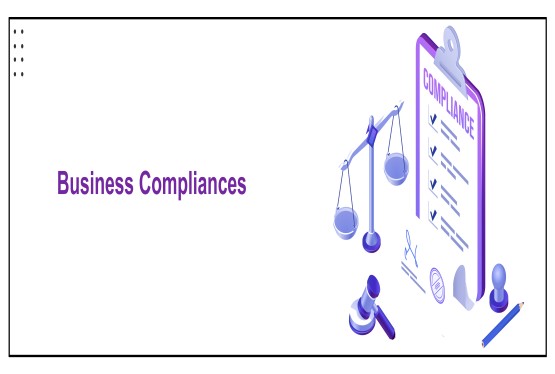The Financial Intelligence Unit India (FIU-IND) is the central national agency responsible for receiving, processing, and analysing information relating to suspicious financial transactions. Established under the Prevention of Money Laundering Act, 2002 (PMLA), its purpose is to curb money laundering and terrorist financing. FIU registration is mandatory, but the compliance obligations vary depending on the type of organisation. This paper explains category-wise requirements, highlighting relevant statutory provisions, sectoral guidelines, and judicial precedents.
Legal Foundation and Rationale
The obligation to register with FIU-IND primarily flows from the Prevention of Money Laundering Act, 2002, read with the rules and subsequent amendments. The law categorises certain institutions as 'reporting entities' and makes it mandatory for them to report transactions that may indicate suspicious activities, large cash movements, or cross-border transfers. In addition to the PMLA, the Reserve Bank of India, the Securities and Exchange Board of India, the Insurance Regulatory and Development Authority of India, and other regulators issue guidelines which direct their respective sectors to comply with FIU norms. The broader rationale lies in protecting the Indian financial system from being misused for criminal activities, while also meeting international obligations, particularly those set by the Financial Action Task Force (FATF). In this way, FIU registration represents both a domestic compliance duty and a global responsibility.
Entities Required to Register under FIU
Banks
All scheduled, cooperative, and private banks are mandated to register with the Financial Intelligence Unit (FIU). As custodians of the country’s financial system, banks handle high-value transactions and customer accounts, making them primary channels where risks of money laundering and terror financing may arise. Their compliance ensures that the financial system remains transparent and traceable.
Non-Banking Financial Companies (NBFCs) and Housing Finance Firms
NBFCs and housing finance companies play a crucial role in extending credit and financial services to individuals and businesses. Since these entities deal with large volumes of loans, deposits, and investments, FIU registration ensures that their operations remain under strict scrutiny, reducing the chances of financial crime.
Payment System Operators
Entities facilitating digital payments, including mobile wallets, UPI service providers, and other electronic money platforms, must also register. With the rise of cashless transactions, the government has recognized the need to regulate these operators to prevent misuse of digital payments for illicit activities.
Capital Market Intermediaries
Stockbrokers, mutual fund distributors, and portfolio managers fall under FIU oversight. These intermediaries manage large sums of investor funds, which could otherwise be misused for market manipulation or money laundering. Registration ensures compliance with monitoring and reporting obligations.
Insurance Companies and Agents
Both life and general insurance companies, along with their agents, are required to register. Insurance products can sometimes be exploited for layering or integrating illicit money into the economy. FIU compliance helps mitigate these risks by enforcing mandatory reporting standards.
Virtual Asset Service Providers
Recently, cryptocurrency exchanges, NFT marketplaces, and other virtual asset platforms have been included under the FIU regime. This step reflects the government’s proactive approach to regulate emerging digital assets, which are highly vulnerable to misuse due to their cross-border and anonymous nature.
Real Estate Agents
Real estate has traditionally been a sector vulnerable to black money transactions. By bringing real estate agents under FIU compliance, authorities aim to ensure that property deals remain transparent and free from laundering risks.
Casinos and Other Notified Entities
Casinos, which involve large cash transactions, have been specifically notified from time to time as reporting entities. Their inclusion under FIU ensures that cash-intensive entertainment and gaming activities are monitored closely for suspicious financial behavior.
FIU Registration for Banks and NBFCs
Banks, including scheduled commercial, cooperative, and private banks, fall under the definition of 'reporting entity' in Section 2(1)(wa) of the PMLA. Section 12 makes it mandatory for them to maintain records and report prescribed transactions to FIU-IND. The Reserve Bank of India (RBI) further issues guidelines such as the Master Directions on KYC, requiring appointment of Principal Officers and filing of Suspicious Transaction Reports (STRs), Cash Transaction Reports (CTRs), and other filings. In Axis Bank v. Directorate of Enforcement (2019), the Delhi High Court upheld the strict enforcement of obligations under the PMLA, affirming that financial institutions cannot downplay their compliance duties.
FIU Registration for Capital Market Intermediaries
Capital market intermediaries, including stockbrokers, mutual fund distributors, and portfolio managers, are also obligated to register with FIU-IND. SEBI enforces compliance through its circulars under the PMLA (Maintenance of Records) Rules, 2005. Section 2(1)(sa) of PMLA defines intermediaries as designated businesses, thereby widening the scope of reporting entities. SEBI requires intermediaries to implement AML policies, conduct client due diligence, and promptly report suspicious transactions. Lapses attract penalties under Section 13 of PMLA.
FIU Registration for Insurance Companies
Insurance companies, including life and general insurers as well as their agents, are covered under FIU registration obligations. Section 12 of PMLA mandates them to maintain transaction records, while the Insurance Regulatory and Development Authority of India (IRDAI) issues guidelines to prevent misuse of insurance products. Insurers must establish compliance frameworks and report transactions to FIU-IND. Failure may result in penalties and reputational harm.
FIU Registration for Virtual Asset Service Providers
In March 2023, the Ministry of Finance notified that Virtual Asset Service Providers (VASPs), including cryptocurrency exchanges and NFT platforms, fall under the PMLA. They are now recognised as reporting entities and must comply with FIU registration and reporting obligations. Given the risks of anonymity and cross-border transactions, VASPs face enhanced due diligence requirements. This step aligns India with international FATF standards. Non-compliance may result in regulatory action.
FIU Registration for Real Estate Agents and Other Designated Professions
Section 2(1)(sa) of PMLA also includes persons carrying on designated businesses or professions, such as real estate agents and casinos. Real estate agents must report high-value property transactions, which are vulnerable to money laundering. FIU-IND, under Section 13 of PMLA, can impose monetary fines on defaulting agents. This reflects the legislature’s intent to expand AML compliance beyond conventional financial institutions.
Ongoing Reporting and Compliance Duties
Once registration is complete, entities cannot remain passive. They are required to submit a wide range of reports, including Suspicious Transaction Reports (STRs), Cash Transaction Reports (CTRs), Cross-Border Wire Transfer Reports (CBWTRs), NGO Transaction Reports (NTRs), and property transaction reports. Each of these categories has specific thresholds and timelines for submission, and delay or default is treated very seriously. For example, STRs must be filed as soon as a transaction gives rise to suspicion, regardless of the amount involved. The accuracy and timeliness of reporting are crucial because lapses can attract monetary penalties, warnings, and in some cases, criminal liability. Beyond reporting, FIU-IND also expects entities to maintain updated compliance structures, train employees, and make necessary internal policy adjustments to meet evolving regulatory expectations.
Enforcement and Penalties
FIU-IND enjoys wide powers to enforce compliance. It may conduct audits of registered entities, demand clarifications, and impose strict penalties in cases of default. Enforcement history reveals that even large multinational platforms have been fined heavily for failing to register or for neglecting their reporting duties. Apart from financial penalties, entities may face suspension or cancellation of their licenses, which effectively stops their business operations. The reputational impact is equally significant, as lapses in anti-money laundering compliance often create distrust among clients, investors, and regulators. This strict enforcement underscores the seriousness with which the government views money laundering risks.
Special Considerations
Certain sectors face additional challenges. Virtual asset service providers, for instance, must not only register but also implement heightened security and reporting standards because of the inherent risks in cryptocurrency transactions. Entities in all sectors must also update their FIU records whenever there is a change in business activity or senior management. Such updates are not optional; failure to provide timely information is treated as non-compliance. Therefore, registration is not a one-time obligation but a continuing relationship with the regulator.
Final Analysis
FIU registration is not a generalised requirement but a category-specific framework that varies across banks, NBFCs, capital market intermediaries, insurance companies, VASPs, and designated professions. Sections 2, 12, and 13 of PMLA, supported by guidelines from RBI, SEBI, IRDAI, and notifications from the Ministry of Finance, collectively ensure that diverse sectors are brought under scrutiny. Recognising these distinctions demonstrates that FIU registration is a tailored compliance tool designed to protect the financial system and align India with global AML standards.












_crop10_thumb.jpg)





_crop10_thumb.jpg)




























-Form_crop10_thumb.jpg)

_crop10_thumb.jpg)























_learn_crop10_thumb.jpeg)
































_crop10_thumb.jpg)

_crop10_thumb.jpg)





















_crop10_thumb.jpg)















_for_Foreign_Directors_learn_crop10_thumb.jpeg)




_Act,_2015_learn_crop10_thumb.jpg)



































_learn_crop10_thumb.jpg)









































